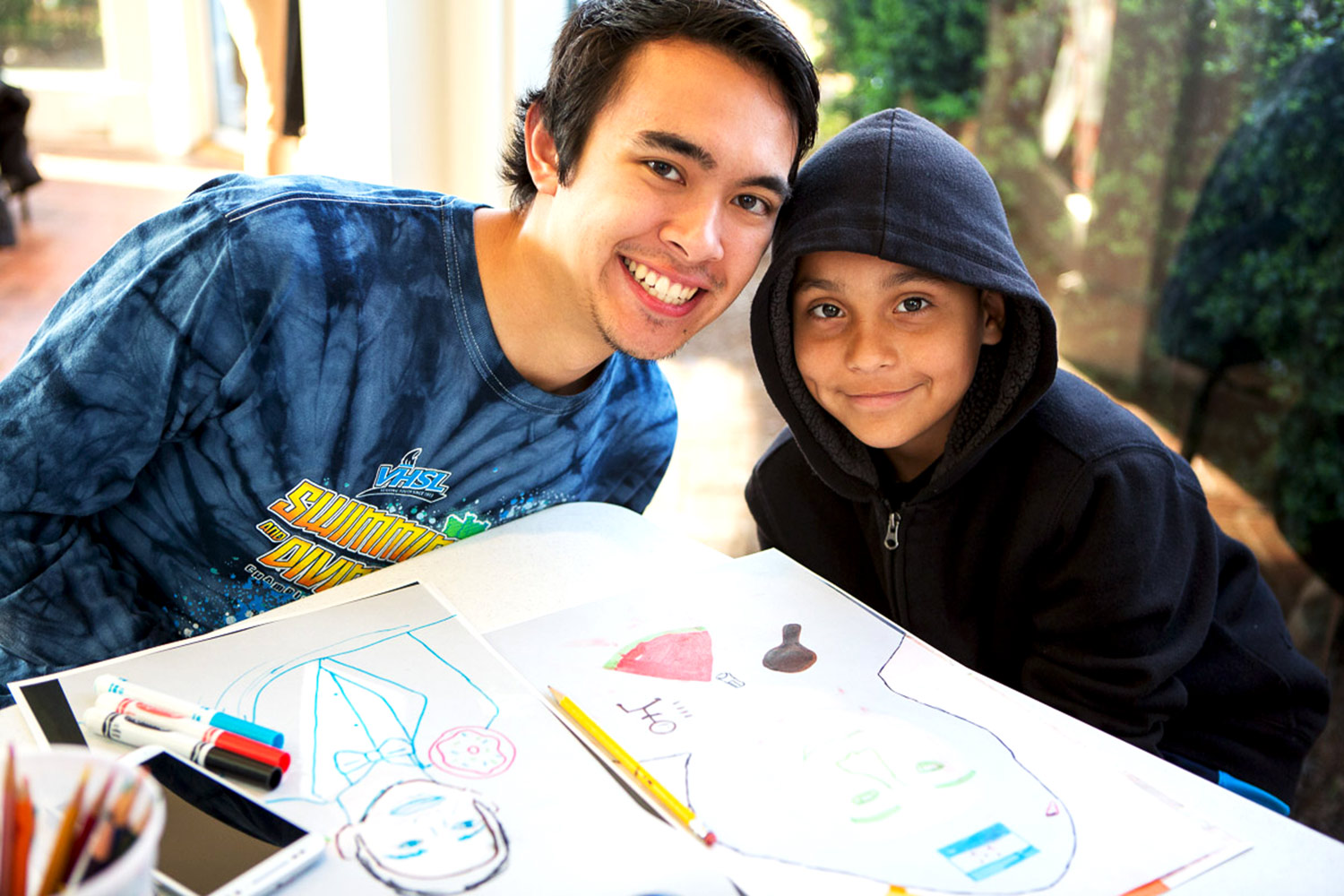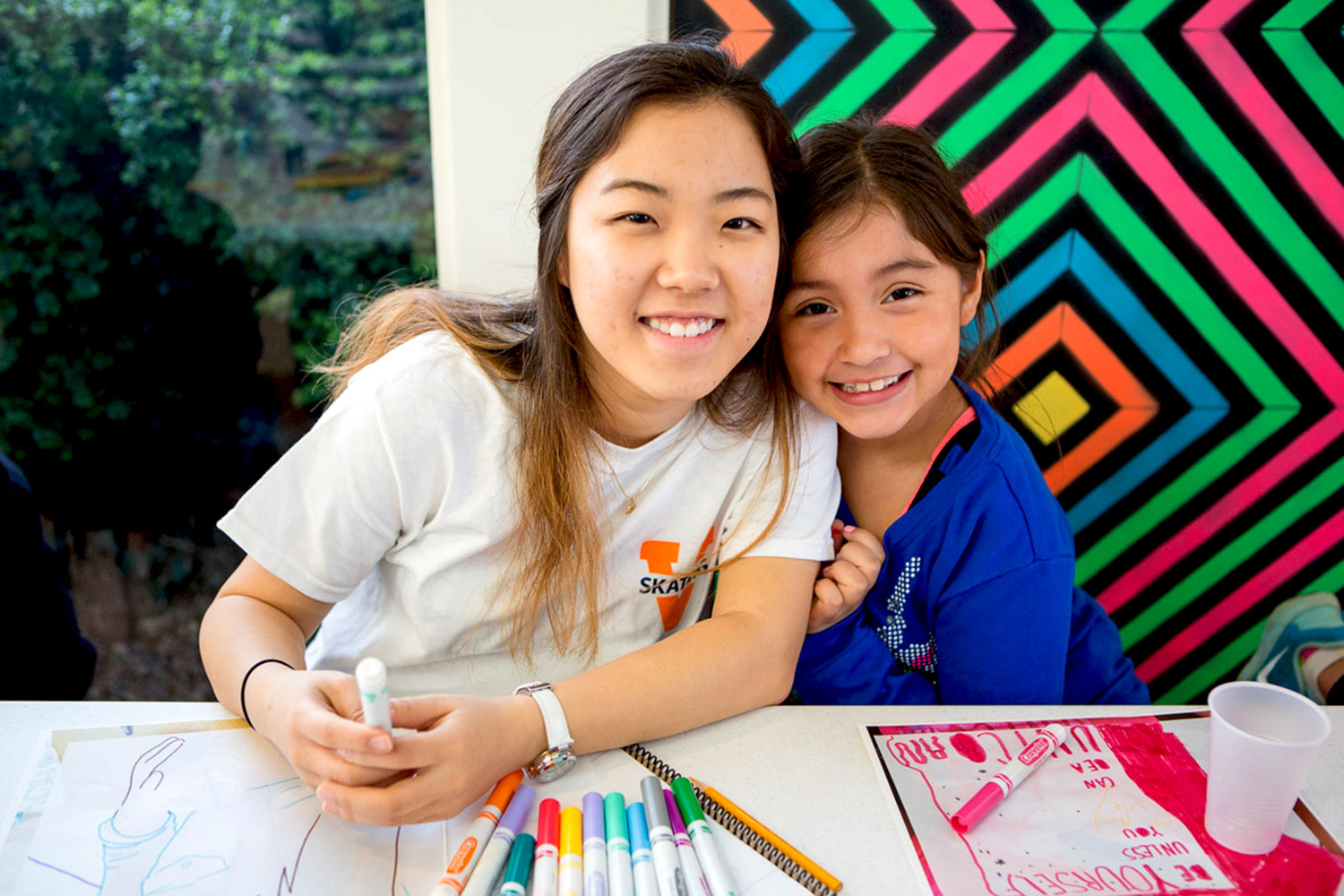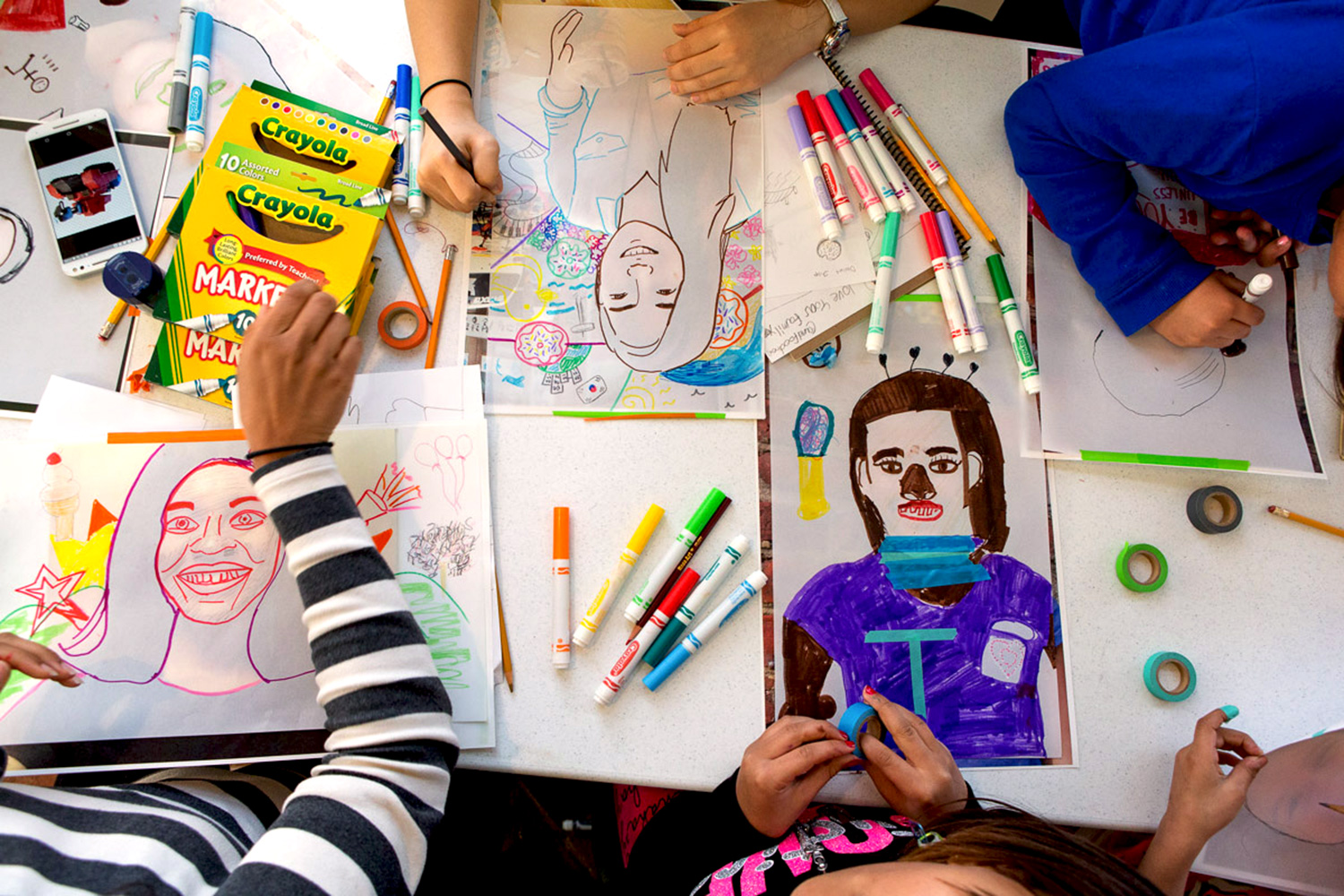David Cook recalls one child who was very shy when he first enrolled in the Early Visions program, sponsored by The Fralin Museum of Art at the University of Virginia and the Boys & Girls Club of Central Virginia. His home life was in turmoil and he had been isolating himself from peers and teachers, sitting apart in the classroom and on the playground.
Slowly, though, he began to talk and joke with his UVA student mentor, to enjoy creating art during the program’s weekly sessions, and to smile again.
“It really helped him turn it around a little bit,” Cook said. “He did not sit in the corner anymore and enjoyed interacting with a mentor who was giving him all of his attention.”

Second-year student Jacob McLaughlin and his mentee work on their self portraits. (Photos by Stacey Evans)
Mentor relationships are a central focus of the Early Visions program, which pairs UVA students with elementary and middle school-aged children from the Boys & Girls Club of Central Virginia. For 10 weeks each spring, roughly 30 pairs meet weekly at The Fralin to explore its collections, create their own art and simply enjoy each other’s company. The program is just one of several efforts connecting special tours, workshops and family events.
“Having those positive mentor relationships can be unbelievably helpful,” said Cook, the lead program coordinator at Charlottesville’s Southwood Boys & Girls Club. “We have a saying that ‘You can’t be what you don’t see.’ Visibility and insight into different professions and ways of life are so important for our kids.”
A 2013 UVA graduate, Cook has been involved with Early Visions since his first year at UVA, which spurred him to find additional volunteer opportunities with the Boys & Girls Club and work his way into a job there.
“I love this program, and am so passionate about it that it became my career path,” he said. “It is a great opportunity to use art to mentor a child one-on-one.”
Aimee Hunt, associate academic curator at The Fralin, and Lisa Jevack, the museum’s Early Visions coordinator, develop a series of activities to introduce students to different types of art and give them plenty of opportunities to have fun and be creative. Last spring, they built the program around a central theme: telling your story.
“We want to use art as a tool to help them develop self-confidence and awareness of the world,” Hunt said.
Among other activities, mentors and mentees toured exhibitions at The Fralin and UVA’s Kluge-Ruhe Aboriginal Art Collection, created their own self-portraits, learned about mapmaking, made maps of the places that matter to them and kept journals about their experiences. At the end of the program, the children curated a special exhibition, choosing several pieces of their own work that were then displayed at City Space in downtown Charlottesville and celebrated during a special reception for mentors and mentees.

Second-year student Claire Song worked with her mentee each week throughout the 10-week program.
Many of the children returned to The Fralin on field trips with their respective schools and were excited to tell their classmates about what they had learned.
“They start to take ownership of the museum, to feel like they are familiar with it and belong here,” Hunt said. “One of the biggest goals of the program is to introduce the kids to UVA, get them feeling comfortable on Grounds and introduce them to the idea of going to college, if that is not something they had thought about before.”
Organizers also hope that the program will increase UVA students’ awareness of the wider Charlottesville community.
“It’s a great learning opportunity for the UVA students,” Hunt said.
Mentors must apply for the program and, once accepted, attend a daylong training session addressing, among other topics, the racial history of Charlottesville and past resistance to the integration of public schools.
“It might sound like an overstatement, but Early Visions’ training radically shaped the person that I am today,” Cook said. “It offered really great, immersive racial sensitivity training about how to deal with underserved populations and populations with different races and ethnicities.”
The perspective he gained as a mentor continues to shape his current work, Cook said.
“In a way, it became my career path,” he said. “It helped to shape my current view of how I try to negotiate racial and class divides between myself and the families that attend the Southwood Boys & Girls Club. I love my job. I would love to work here until the day I retire.”
Media Contact
Article Information
July 11, 2016
/content/mentors-museum-art-builds-bonds-between-uva-students-local-kids

